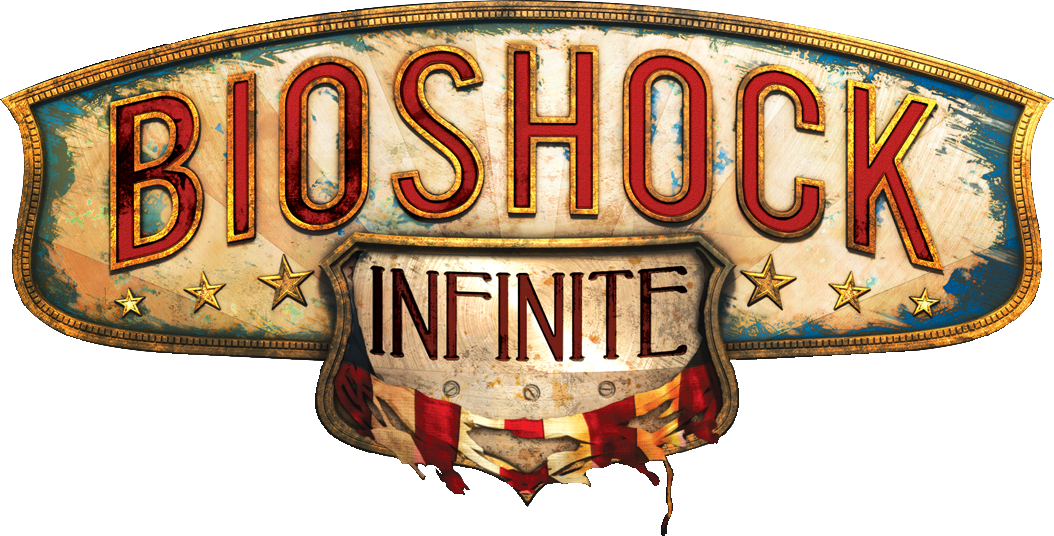4-Player is a new, weekly video game column examining gaming culture on campus and online, documenting a previously unrepresented segment of BU’s culture. 4-Player is co-written by Jon Christianson, Ashley Hansberry, Allan Lasser, and Burk Smyth.
There’s a moment in Bioshock Infinite in which you lose contact with Elizabeth, the character who spends the vast majority of the game by the player’s side. This is an absurdly familiar gaming trope: player character and important non-player character are separated, player character does a few things, moves a few boulders, and everything is fixed. And, in any other game, that’s exactly how I would approach a section like this. I’d pull up the menu to check my objectives, make sure my health was full, and trudge forward to remove whatever plot device had been set before me.

Not in this game. When I realized that Elizabeth was gone, I felt something that I rarely feel when I play video games: panic. Not “oh my god, these dudes have me surrounded, I think I might die” panic, but real, visceral, what-do-I-do-now panic. That was quickly followed by anger, because I’d be goddamned if I wasn’t going to find Elizabeth. I played through that section with a pronounced sense of purpose and anger.
How the game manages to make me care so much about Elizabeth is perhaps its most important achievement, but before getting into that, I have to establish some context. Bioshock Infinite is the newest game from Boston’s own Irrational Games. It’s a follow up to the studio’s first title, Bioshock, which in itself is one of the most important games of the last decade. Those are some big boots to fill, but I can very easily say that Infinite more than lives up to its predecessor. Frankly, it’s better in every way.
Infinite takes place in an alternate-history version of 1912. You play as Booker DeWitt, a disgraced former Pinkerton agent drowning in alcoholism and gambling debts. Booker is sent to find Elizabeth and bring her back to New York. Once Booker does this, his debts will be wiped clean. One problem: Elizabeth is in Columbia, a city floating in the sky. And the people on that city do not want Booker to get to her.
On a pure gameplay level, Infinite is good, sometimes even great. Superficially, combat is quite similar to the original Bioshock. You fight enemies using a combination of traditional guns and vigors, the game’s version of supernatural powers. You can launch crows out of your hand and gun down the distracted enemies with a machine gun, among other scenarios not unlike the first game’s. However, once you get down to it, Infinite separates itself in a number of ways. Where Bioshock was slow and deliberate, Infinite is quick, unrelenting and chaotic. Fights often take place in multilevel areas covered in enemies. Columbia itself is covered in “skylines,” a sort of train cum roller coaster that Booker is able to ride using a tool called a “skyhook.” This leads to situations where I’d be jumping from flotilla to flotilla, bashing guys with my skyhook and desperately trying to find ammo. It’s fun, but if I would level any criticism at Infinite, it’s that the combat can get repetitive fast.
The combat is good, but where Infinite truly leaps over the bar is in narrative and atmosphere. In Columbia, Irrational has created one of the most arresting and stunning settings in the history of the medium. Much like the Bioshock’s underwater city of Rapture, Columbia is a city that is first and foremost defined by its philosophy, though it ditches the latter’s subjectivism in favor of American conservatism. It is led my Father Comstock, a prophet who leads a religion based around the worship of the Founding Fathers. Columbia is a city awash in turn of the century symbolism, and it’s absolutely beautiful.
It doesn’t take too long for the veneer to crack, however. It is a city deeply rooted in American history, and Irrational is not afraid to show just how dark this country could be. The city is marred by horrible racism and violence. “Colored” bathrooms dot the landscape, corrupt industrialists run rampant, and Wounded Knee is treated as one of America’s great military successes. Irrational has produced some disturbing scenes here, but it never seems like they’re present simply for shock value. It’s very clear that Infinite has something to say about all of the issues it wants to present. On one level, Infinite is working as a form of political criticism, and it pulls that off very well.
Infinite is also working on a more philosophical, emotional level. The game totally transfixed me, and by the time I got to the ending, I wasn’t quite sure what to do with myself. The ending was completely satisfying, and I’m still thinking about it a week later. I can’t really say much more without spoiling, and it’s a story that really should be experienced firsthand. The narrative is helped along by the dual vocal performances of Troy Baker and Courtnee Draper as Booker and Elizabeth, who together put on perhaps the greatest voice acting job the medium has ever seen. Draper’s performance as Elizabeth is particularly wonderful, and combined with her character’s fantastic animation, she manages to produce some arresting moments.
Which brings me to Elizabeth. Elizabeth–as a character, as a mechanic and as an AI–is one of the most incredible, if not the most incredible things I have ever experienced in a video game. As a gameplay element, she’s stunningly intuitive. She throws you ammo and health when you need it. She can open “tears,” portals to other worlds, which serve to help in combat. But it’s the little things that really impress. She never gets stuck on geometry, she never lags behind the player character. You never have to make sure she’s still following you. She’s an incredible video game character in that she doesn’t feel like one. She feels real.
And she’s a phenomenal character. She’s not supposed to be a sex object, and you’re not supposed to fall in love with her on some romantic level. Instead, you just end up really liking her, and feeling for her on a level that I’ve only experienced in books and movies. She can be naive and strong in the same turn, and in the end I felt like I actually needed this character by my side. Not as a gameplay mechanic, but as a companion. Despite the guy on the cover, Elizabeth becomes the true star of the game, and I spent most of it trying to learn more about her and the city in which I found her.
It’s a bit hard to put into words what Irrational has done with Bioshock Infinite. And that’s a good thing. What they’ve achieved, the narrative that they’ve created, can only be truly experienced as a video game. I can sit here and talk about how great Elizabeth is and voice acting and political criticism all I want, but it’s not gonna make sense until you play the game. What I can say is this: with Bioshock Infinite, Irrational Games has moved the entire medium forward. It’s a stunning achievement. Go play it.

